
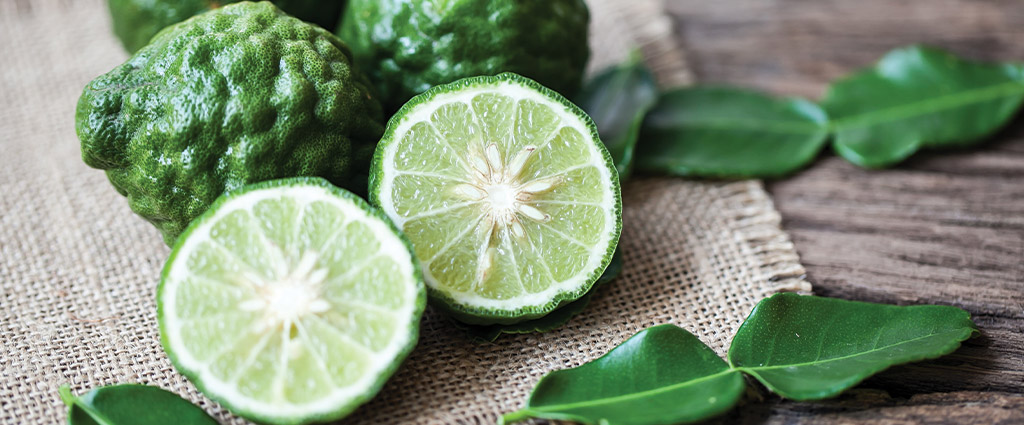
Bergamot Vs. Statins
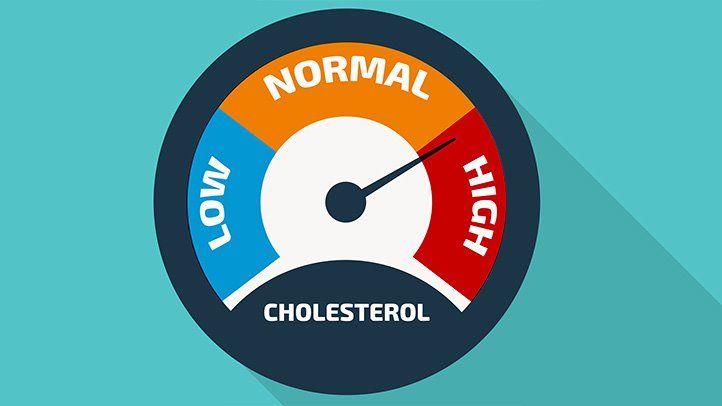
Hypercholesterolemia is a condition characterized by high cholesterol accumulation in the body and is very common with more that 3 million cases per year in the US. It doesn’t cause any symptoms but may eventually lead to heart attack, peripheral artery disease, or stroke due to atherosclerosis.
Hypercholesterolemia can be caused by diets high in saturated fats, lack of exercise and physical activity, stress and the hormone cortisol (which can increase LDL), genetics, and other medical conditions like diabetes, high blood pressure, obesity, and smoking.
TYPES OF CHOLESTEROL
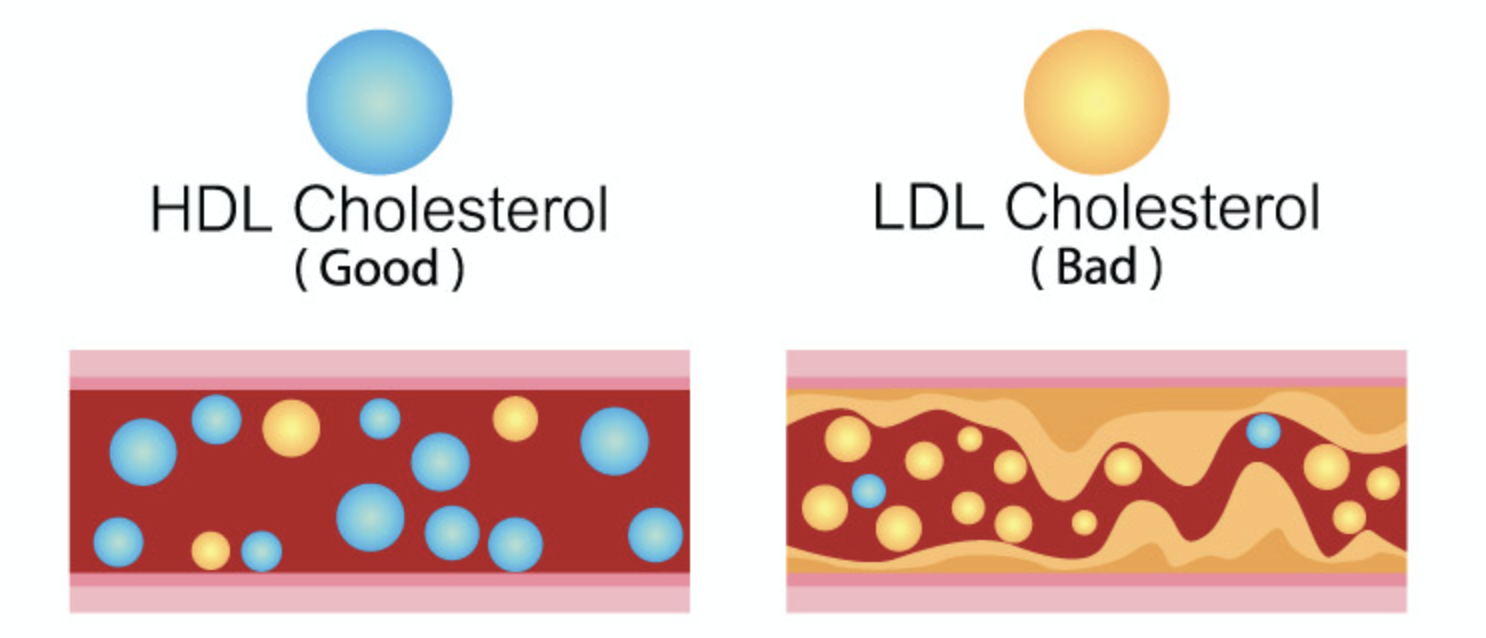 There are 2 types of cholesterol. HDL (high-density lipoprotein) which is known as your good cholesterol and LDL (low-density lipoprotein) which is known as your bad cholesterol.
There are 2 types of cholesterol. HDL (high-density lipoprotein) which is known as your good cholesterol and LDL (low-density lipoprotein) which is known as your bad cholesterol.
Triglycerides are another type of fat in your blood. When you eat more calories than your body can use, it turns the extra calories into triglycerides and stores them as fat. If you have high cholesterol, your body may store the extra cholesterol in your arteries (which is known as plaque).
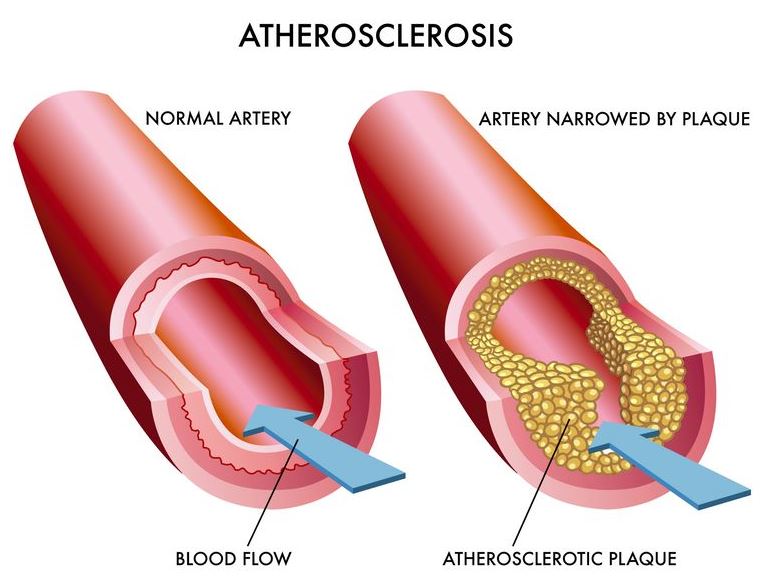
Over time, plaque can become hard and make your arteries narrow. Large deposits of plaque can completely block your artery and cholesterol plaques can also break apart causing blood clots which can lead to heart attacks or stroke.
Many people don’t discover that they have high cholesterol until they suffer one of these life-threatening events or through routine check-ups that include blood tests.
IS IT TREATABLE?
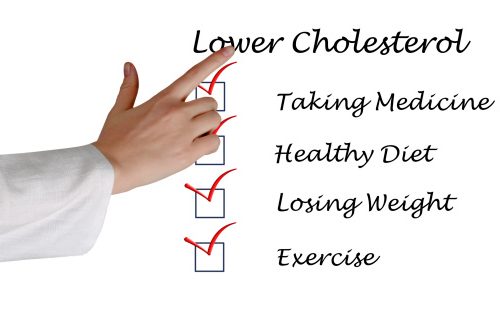 The primary recommended treatment methods include changes in diet, lifestyle, and exercising . Eating fewer foods with saturated fats (such as red meat and most dairy products) and incorporating more lean meats, low fat dairy items, and foods rich in omega-3 fatty acids (like salmon, herring, walnuts and almonds) can help lower your cholesterol.
The primary recommended treatment methods include changes in diet, lifestyle, and exercising . Eating fewer foods with saturated fats (such as red meat and most dairy products) and incorporating more lean meats, low fat dairy items, and foods rich in omega-3 fatty acids (like salmon, herring, walnuts and almonds) can help lower your cholesterol.
Medications may also be prescribed in cases of very high cholesterol levels.
WHAT ARE STATINS?
Several types of medications are used to treat high cholesterol levels. A very popular treatment is the use of statins. Statins block an enzyme in your body called HMG-CoA reductase which slows down your body’s production of cholesterol. In blocking this enzyme, statins also block the production of CoQ10 - which is your natural source of energy and a powerful antioxidant.
Not surprisingly, the side effects commonly associated with statin drugs are nearly identical to the symptoms of CoQ10 deficiency. These side effects include muscle pain and weakness, headaches, difficult sleeping, fatigue, memory loss and confusion, increased risk of heart failure and GI disturbances.
Newer research now linked high cholesterol levels and cardiovascular disease to chronic inflammation. With that said and the fact that people are looking at functional medicine and alternative options, Bergamot has become an alternative option in the treatment of high cholesterol.
WHAT IS BERGAMOT?
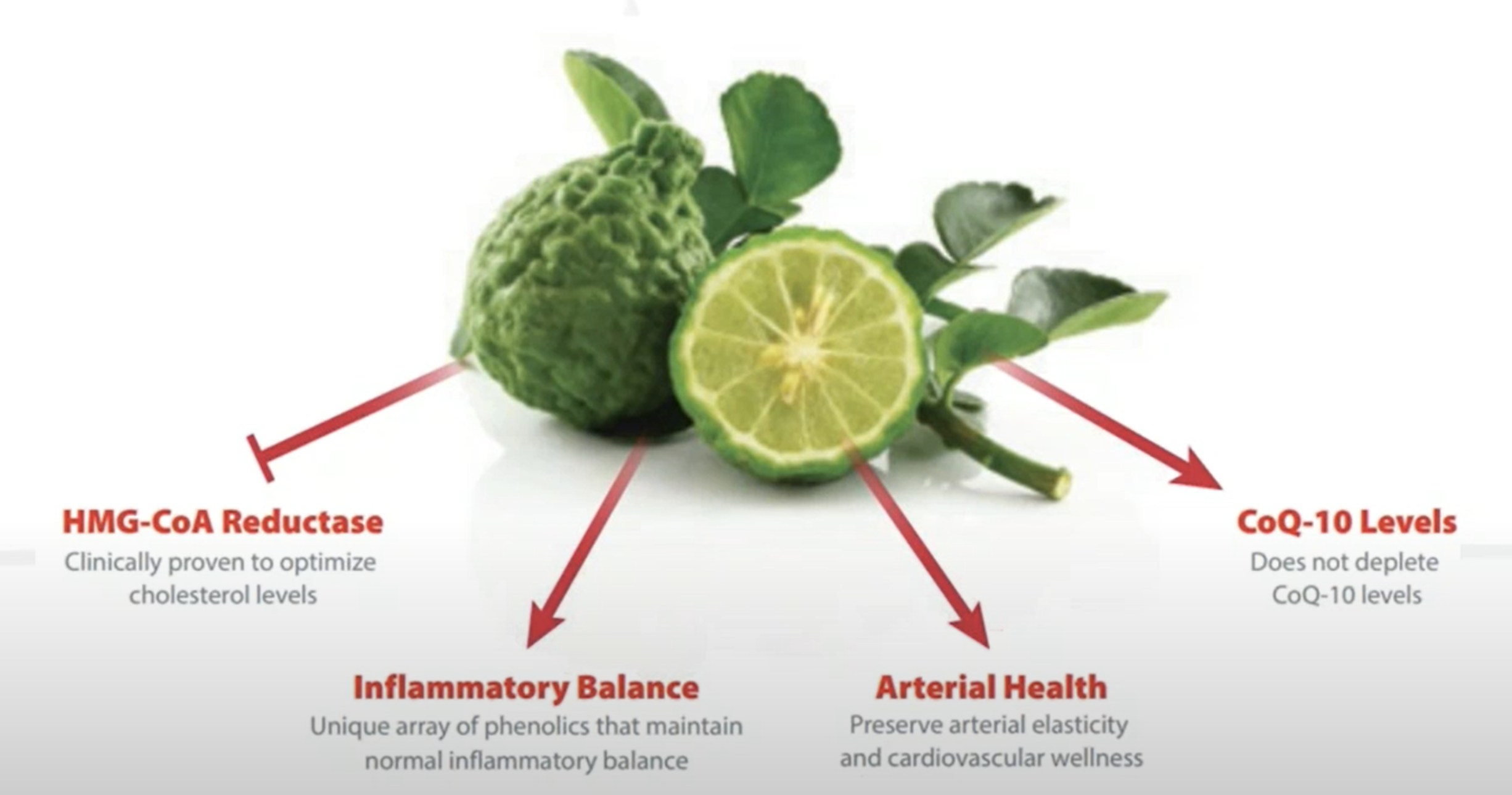 Bergamot is a citrus plant that grows almost exclusively in the narrow coastal Calabria region in southern Italy. This is located in what is called the “Blue Zone”. The Blue Zone is an area where people live longer, healthier lives. It was found that this population drinks bergamot juice like we drink orange juice on a regular basis.
Bergamot is a citrus plant that grows almost exclusively in the narrow coastal Calabria region in southern Italy. This is located in what is called the “Blue Zone”. The Blue Zone is an area where people live longer, healthier lives. It was found that this population drinks bergamot juice like we drink orange juice on a regular basis.
Bergamot supports healthy cholesterol levels and optimizes cardiovascular wellness due to its highly concentration of cardio-protective poly-phenolic flavonoids. Research has shown that Bergamot helps maintain healthy total cholesterol and high density lipoprotein (HDL), while lowering low density lipoprotein (LDL) and triglycerides.
Getting into the science, Bergamot’s health benefits derive from its unique profile of phenolic compounds such as neoeriocitrin, neohesperidin, naringin, rutin, neodesmin, rhoifolin and poncirin. Bergamot is also rich in brutieridine and melitidine which have a unique ability to dampen HMG-CoA reductase.
STATINS VS. BERGAMOT
The difference between statins cholesterol lowering capabilities and Bergamots is that statins close the door completely on the enzyme HMG-CoA reductase where Bergamot leaves the door open or dampens HMG-CoA reductase. By only dampening this enzyme, it allows for the reduction of cholesterol production without affecting the body’s normal production of CoQ10 and other hormones like vitamin D, estrogen, progesterone, testosterone and cortisol. By preserving your CoQ10 and other hormone levels, you eliminate many of the side effects caused by statin medications.
 In several placebo-controlled clinical trials, 1000mg of Bergamot helped maintain healthy levels of all the blood lipid markers (HDL, LDL, total cholesterol and triglycerides) and outperformed the group receiving the traditional statin therapy. In another placebo-controlled clinical trial comparing 1000mg Bergamot BPF to 10mg Rosuvastatin, Bergamot BPF had identical effects on lowering total cholesterol and LDL and elevating HDL cholesterol. However, Bergamot BPF out performed Rosuvastatin in lowering triglycerides. When Rosuvastatin was increased to 20mg and compared to adding 1000mg of Bergamot BPF to 10mg Rosuvastatin, the results were again exactly the same.
In several placebo-controlled clinical trials, 1000mg of Bergamot helped maintain healthy levels of all the blood lipid markers (HDL, LDL, total cholesterol and triglycerides) and outperformed the group receiving the traditional statin therapy. In another placebo-controlled clinical trial comparing 1000mg Bergamot BPF to 10mg Rosuvastatin, Bergamot BPF had identical effects on lowering total cholesterol and LDL and elevating HDL cholesterol. However, Bergamot BPF out performed Rosuvastatin in lowering triglycerides. When Rosuvastatin was increased to 20mg and compared to adding 1000mg of Bergamot BPF to 10mg Rosuvastatin, the results were again exactly the same.
The conclusion to these studies is that Bergamot BPF lowers total cholesterol and LDL and increases HDL the same as a statin but lowers triglycerides substantially more than a statin while eliminating many of the side effects cause statin medications.
COULD BERGAMOT HELP YOU?
To learn more about the many benefits of Bergamot BPF as well as other high quality nutraceuticals, stop into your local Hometown Pharmacy and speak to the pharmacist. We are here to help you get healthy and stay well.
Learn more about Rick and his pharmacy by visiting: Hartland Hometown Pharmacy

.png?ext=.png)
.jpg?ext=.jpg)





Comments